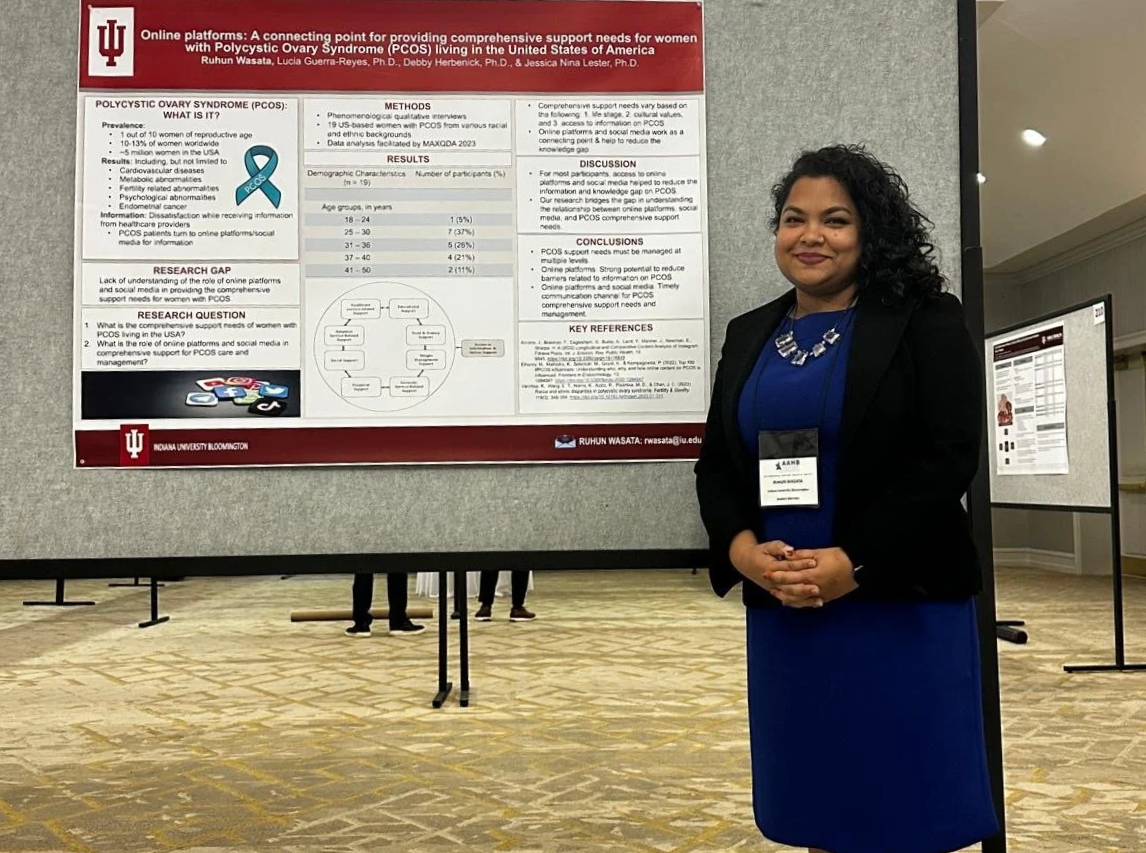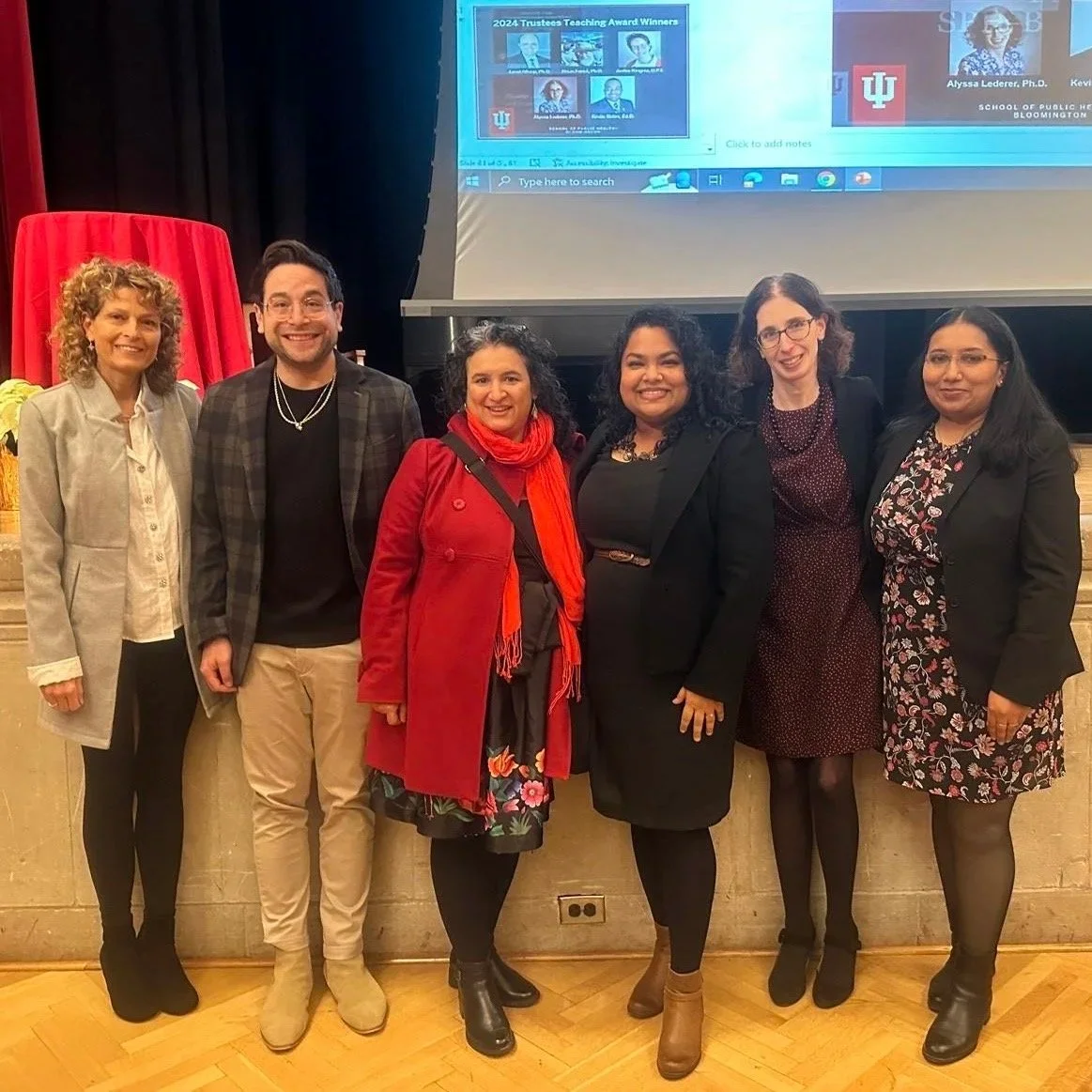Research
My research bridges digital health, chronic illness, and reproductive health to reveal inequities in care. I develop community-based, culturally precise approaches that make public health more just and accessible.
Research Program
I approach public health as both inquiry and intervention, examining how digital health, chronic illness, and reproductive health reveal inequities and developing strategies to advance equity for marginalized communities.
My research develops Culturally Grounded Health Outcome through Responsive Digital Equity (CHORDE) framework. CHORDE combines three approaches:
Mapping Representation – analyzing how health information circulates and whose voices are amplified or silenced.
Adapting Evidence – co-creating interventions that translate biomedical evidence into meaningful, culturally precise, and linguistically responsive guidance.
Building Methodological Capacity – developing tools and pedagogies that sustain equity-centered public health research and education.
Across these domains, my goal is to transform digital platforms into spaces for equity and resilience, particularly for women and communities navigating chronic and reproductive health conditions.
Research Projects
PCOS and Digital Health Equity
Polycystic Ovary Syndrome (PCOS) is one of the most widespread yet poorly understood chronic conditions, disproportionately affecting women of color and those in underserved communities. My research uses PCOS as a lens to explore inequities in chronic illness management and the opportunities digital platforms provide for intervention. Through content analysis of over 1,500 Instagram posts and photo-elicited interviews with 20 women of color, as well as in-depth interviews with 25 participants on comprehensive support needs, I examine how social media both reproduces inequities and fosters spaces for resilience. A key outcome of this work is the design of culturally precise digital interventions, including a pilot project that trains influencers to share evidence-based guidance. This project has generated three manuscripts in preparation and has been presented at national conferences such as APHA, AAHB, and SSSS.
Sexual and Reproductive Health and Agency
Sexual and reproductive health (SRH) remains one of the most inequitable areas of public health, where interventions often fail to reflect the cultural realities of diverse populations. My work addresses this gap by treating digital health as both a research site and a mode of intervention. I use digital content analysis, participatory co-design workshops, and multilingual adaptation to study how SRH information circulates, how it is interpreted, and how it can be reframed in culturally meaningful ways. It also builds on my published research on maternal care disparities and national sexual health survey studies. Ultimately, this project aims to demonstrate how digital platforms can serve as both tools of inequity and channels for equity-driven interventions.
Advancing Equity-Centered Pedagogy (SoTL)
In addition to my focus on health outcomes, I examine how teaching itself can advance equity. As a co-investigator in a Scholarship of Teaching and Learning (SoTL) study on an undergraduate public health research methods course, I developed the qualitative codebook, trained the research team, and conducted data analysis. Our study, presented at APHA 2024, moves beyond measuring satisfaction to trace how students encounter, interpret, and apply health equity concepts through methods training. The project is producing a manuscript and a curriculum toolkit for embedding equity-centered pedagogy into undergraduate education. By situating SoTL within the CHORD framework, I extend my broader focus on digital health equity into the classroom, aligning teaching practice with research commitments to inclusivity and justice.
Peer-reviewed Publications
Herbenick, D., Patterson Perry, C., Fortenbery, J.D., Wasata, R., Wilson, J., Miller. O., Willens, K., Williams, A., & Frey, G. (In Press). Women’s experiences with exercise-induced orgasm: Findings from qualitative interviews. Archives of Sexual Behavior.
Herbenick, D., Patterson Perry, C., Lumsdaine, B., Fu, T. C., Balle, M., Miller, O., Wasata, R., & Fortenberry, J. D. (2024). What are Americans’ favorite aspects of partnered Sex? Findings from a U.S. nationally representative Survey. Journal of Sex & Marital Therapy, 1 – 16. [Paper]
Guerra-Reyes, L., Márquez-Lameda, R. D., Wasata, R., & Byrne, O. (2024). Provider perspectives on maternal care challenges for Black and Latine women in Indiana: A qualitative interview study. Sexual and Reproductive Health Matters, 1 – 23. [Paper]
Datta, B. K., Tiwari, A., Abdelgawad, Y. H., & Wasata, R. (2024). Hysterectomy and medical financial hardship among U.S. women. Sexual & Reproductive Healthcare, 42, 101019. [Paper]
Herbenick, D., Fu, T. C., Wasata, R., & Coleman, E. (2022). Masturbation prevalence, frequency, reasons, and associations with partnered sex in the midst of the COVID-19 pandemic: Findings from a U.S. nationally representative survey. Archives of Sexual Behavior, 1 – 15. [Paper]
*If you need access to any of these journal articles, please email me
Grants, Fellowships, and Awards
Applied Health Science Student Travel Award 2024-25, School of Public Health, Indiana University Bloomington. Amount: $2000
Mohammad R. Torabi Scholarship, School of Public Health, Indiana University Bloomington. Amount: $200
Joyce C. Arther Fellowship, School of Public Health, Indiana University Bloomington. Amount: $2000
Irsay Institute Graduate Fellowship, Irsay Institute, Indiana University Bloomington. Amount: $13,500
School of Public Health Student Travel Award 2024-25, Indiana University Bloomington. Amount: $1500
Santosh Jain Endowed Memorial Fellowship 2024, Indiana University Bloomington. Amount: $5000
Applied Health Science Student Travel Award 2024, School of Public Health, Indiana University Bloomington. Amount: $2000
Capstone Research Grant, 2017 – 19, International Development Studies, Center for International Studies, Ohio University. Amount: $2000
Bangladesh – Sweden Research Fund Travel Grant, 2017. Amount: $1500
HEQEP-WorldBankandEastWestUniversity(EWU)FacultyResearchGrant, 2016 – 17, East West University, Bangladesh.






